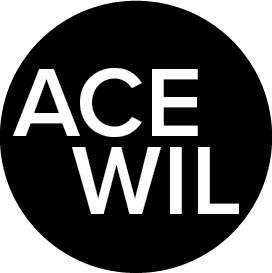News Release
According to results from surveys conducted in Fall 2020 and Spring 2021, as BC navigated the impacts of the COVID-19 pandemic, employers and community partners who typically hire students through work-integrated learning (WIL) programs initially scaled back on student hiring but expect to be at 98% of their usual hiring within the next 6 to 12 months.
Early on in the pandemic, WIL students seeking work placements in order to fulfil their academic requirements were hard hit as many organizations had to reduce staff, suspend operations or move entirely online. In June 2020, the BC Work Integrated Learning Council began a three-stage initiative to reach out to existing WIL employers and community partners to better understand their experiences, needs and intentions. This work included conducting two surveys and a series of focus groups and interviews between September 2020 and May 2021, with 1,494 respondents to the Fall 2020 survey and 853 respondents to the Spring 2021 survey, representing a broad range of regions, sectors and organizations across BC.
The survey results demonstrated that while WIL student hiring during the first months of the pandemic dropped to an average of 74% of usual hirings, by Spring 2021 the average increased to 87%, and when forecasting for the next 6-12 months organizations expect to be on average at 98% of usual hirings. Looking ahead, certain sectors expect to be hiring above their usual, such as accommodation and food services (122%), construction (114%) and manufacturing (109%), while other sectors expect hirings to continue to lag, such as arts, entertainment, and recreation (75%) and educational services (84%).
“This survey initiative is the first of its kind in BC,” explains Julie Walchli, Chair of the BC WIL Council, an independent council of the Association for Co-operative Educational and Work-Integrated Learning BC/Yukon (ACE-WIL) which is comprised of one member from each public, post-secondary institution in BC.
“We know from conversations with employers and community partners that they’ve had to make adjustments due to the pandemic, and through these surveys we now have data that shows how they’ve adapted, what supports they need and what they expect over the next 6-12 months, which will be essential when planning to ensure we have students ready to enter the workforce to meet demand.
“We’re particularly pleased to see from the results that 90% of survey respondents agree that the outlook for WIL students is promising within their organizations. These employers and community partners understand how WIL students add value, particularly during the post-pandemic recovery.”
Work-integrated learning is a partnership between workplaces, post-secondary institutions, and post-secondary students, where workplaces provide an opportunity for students to apply their classroom learning to a real work environment and benefit from the skills, knowledge, and energy that students bring.
“For organizations looking for a competitive advantage during the recovery, a WIL student may give you the edge you need,” says Anna Jubilo, president of ACE-WIL BC/Yukon. “We’ve developed resources to help employers get started with WIL, post opportunities, get funding information and learn about the 25 public post-secondary institutions in BC and the WIL programs they offer, all of which are available through the ACE-WIL website.”
For key survey findings and the detailed report, visit the WIL Employer/Community Partner Survey Project housed within the ACE-WIL Resource Hub. For additional information, contact Julie Walchli, BC WIL Council Chair, or Camilo Peña-Moreno, Manager, Special Research Projects, The University of British Columbia.



